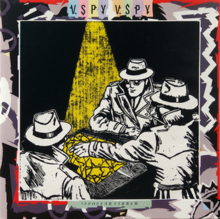
"Rip Her to Shreds" is a song by American new wave band Blondie, which features on the band's self-titled debut album.

"In the Flesh" is a song by American band Blondie and their first to chart. Originally from the band's self-titled debut album, Blondie, the song was Blondie's second and final single on the Private Stock label.

v.Spy v.Spy, also known as Spy vs Spy, SPY v SPY is an Australian pub rock band from Sydney formed in 1981. They became known for tackling political issues through their music, including racism, homelessness and contemporary drug culture.
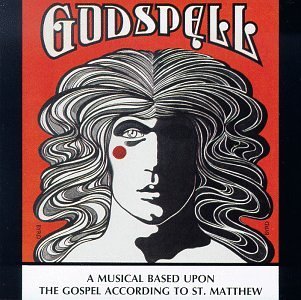
Godspell is the original cast recording of the Cherry Lane Theatre production of Godspell. It produced a radio hit in the summer of 1972 with "Day By Day" with Robin Lamont on the lead vocal. The image of the face on the album cover was designed by David Byrd.
"Love Hurts" is a song written and composed by the American songwriter Boudleaux Bryant. First recorded by the Everly Brothers in July 1960, the song is most well known in two hit versions by UK artists; by Scottish hard rock band Nazareth in 1974 and by English singer-songwriter Jim Capaldi in 1975.
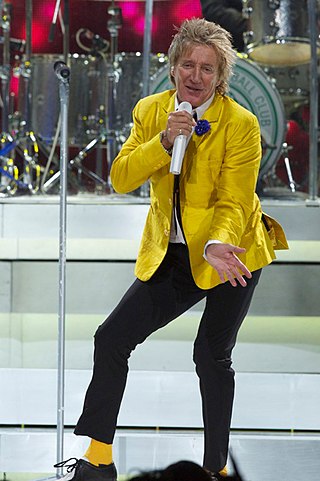
The following is the complete discography of British singer Rod Stewart. Throughout his career, Stewart has sold 120 million records worldwide, making him one of the world's best-selling music artists in history. According to Recording Industry Association of America (RIAA), he has sold 46.6 million albums and singles in the US. Billboard ranked him as the 15th Greatest Artist of all time. He is also the 20th Greatest Hot 100 artist of all time and the 13th Greatest Billboard 200 Artist of all time.
"When You Walk in the Room" is a song written and recorded by Jackie DeShannon. It was initially released as a single on November 23, 1963, as the B-side to "Till You Say You'll Be Mine". It was re-released as an A-side in September 1964, and later included on the album Breakin' It Up on the Beatles Tour. The single charted on the US Billboard Hot 100, peaking at number 99.

Rhymes & Reasons is the fourth album by American singer-songwriter Carole King. Released in 1972, the album features a single "Been to Canaan", which topped the Billboard Adult Contemporary chart and peaked at number 24 on the Pop chart. The album itself also became a hit, reaching number two on the Billboard 200 chart.

The Spy Who Loved Me is the soundtrack for the tenth James Bond The Spy Who Loved Me. The soundtrack is one of only two Bond soundtracks to be nominated for the Academy Award for Best Original Score. The other score nominated was Skyfall (2012).
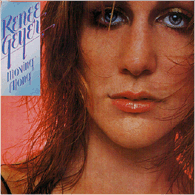
Moving Along is the fourth studio album by Australian soul/R&B singer Renée Geyer, and her first to be recorded in the US and released internationally. It was produced by famed Motown musician Frank Wilson who assembled the cream of US session players to back Geyer. Some notables were members of Stevie Wonder's band including Nathan Watts, Ray Parker Jr., Motown's most famous bass guitarist and Funk Brother James Jamerson, on backing vocals, Venetta Fields, and Mal and Barry from The Renée Geyer Band at Geyer's insistence. For this album, she re-recorded her Australian hit "Heading in the Right Direction" for the US market.
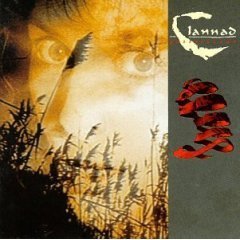
Pastpresent is a compilation album by Irish folk group Clannad, released in 1989. It is a collection of selected songs recorded by the band from 1982 up to 1989, including two new songs exclusive to this release – "The Hunter" and "World of Difference".
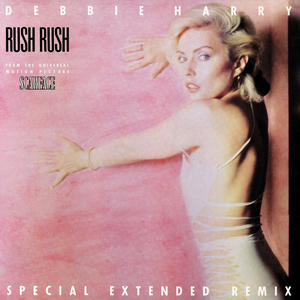
"Rush Rush" is a song written by Giorgio Moroder and performed by American singer Debbie Harry. It was released as the fourth and final single from the soundtrack to the 1983 film Scarface.

A1A or A-1-A is the fifth studio album by American popular music singer-songwriter Jimmy Buffett and the third major label album in Buffett's Don Gant-produced "Key West phase". It was initially released in December 1974 as Dunhill DS-50183 and later re-released on Dunhill's successor labels ABC and MCA.

A.O. Mod. TV. Vers. is the second studio album by Australian rock band Spy vs Spy, produced by Leszek Karski and released through WEA in December 1986.
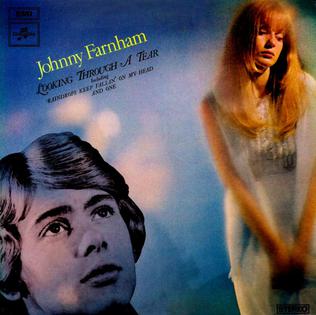
Looking Through A Tear is the third studio album by Australian pop singer Johnny Farnham, the title of which relates to a song on the album, which is a cover of an Aretha Franklin number. it was released in Australia by EMI Records in July 1970. Farnham's covers of Harry Nilsson's penned "One" which became a hit for Three Dog Night and a cover B. J. Thomas' single "Raindrops Keep Fallin' on My Head" were released as singles, and helped to propel the album to No. 11 on the Australian Kent Music Report Album Charts. "One"/"Mr. Whippy" was released as a double A-side in July 1969 and peaked at No. 4 on the Go-Set National Singles Charts. "Raindrops Keep Fallin' On My Head" was released in November and peaked at No. 1 for seven weeks in January–March 1970. Farnham wrote two songs for the album.
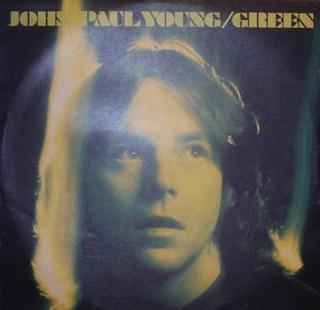
Green is the third studio album by Australian pop singer John Paul Young, released in April 1977. It peaked at number 19 on the Australian albums chart. The album was certified gold in Australia by the end of 1977.
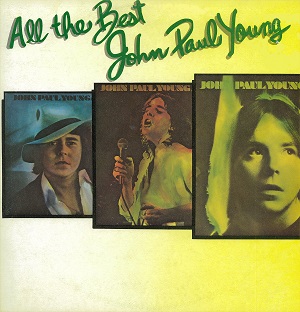
All the Best is the first compilation album by Australian pop singer John Paul Young. Released in November 1977, the album charted at number 40 on the Kent Music Report. The album includes songs from his three studio albums Hero, J.P.Y. and Green.
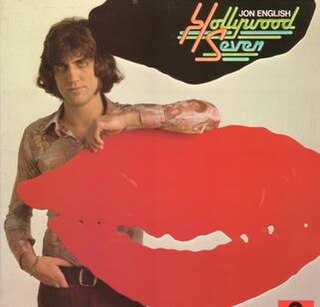
Hollywood Seven is the third studio album by Australian musician, Jon English. The album was released in Australia in August 1976. Three singles were released from the album, including "Hollywood Seven", which peaked at number 13 on the Kent Music chart and number 18 in Sweden.
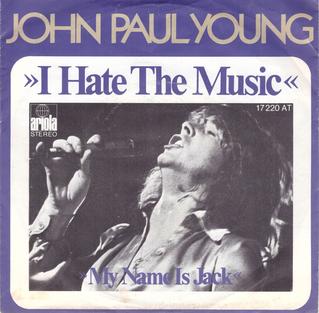
"I Hate the Music" is a pop song written by George Young and Harry Vanda and recorded by Australian pop singer John Paul Young. The song was released in March 1976 as the lead single from the singer's second studio album, J.P.Y. (1976). It peaked at number 2 on the Kent Music Report in Australia, remaining on the chart for 20 weeks. It was certified gold in Australia. It reached number 1 on the South African singles chart.

"Standing in the Rain" is a disco song recorded by Australian pop singer John Paul Young. It was released in Europe in February 1977 and in Australia in December 1977 as the third and final single from Young's third studio album, J.P.Y. (1976). The song was written by George Young and Harry Vanda.
